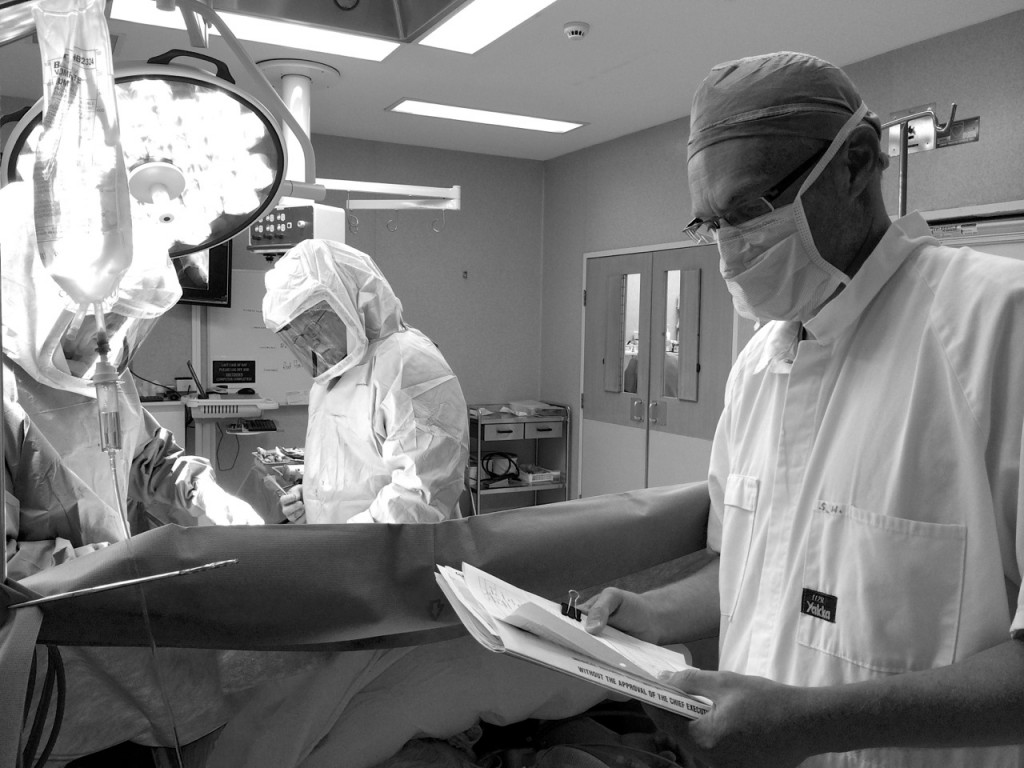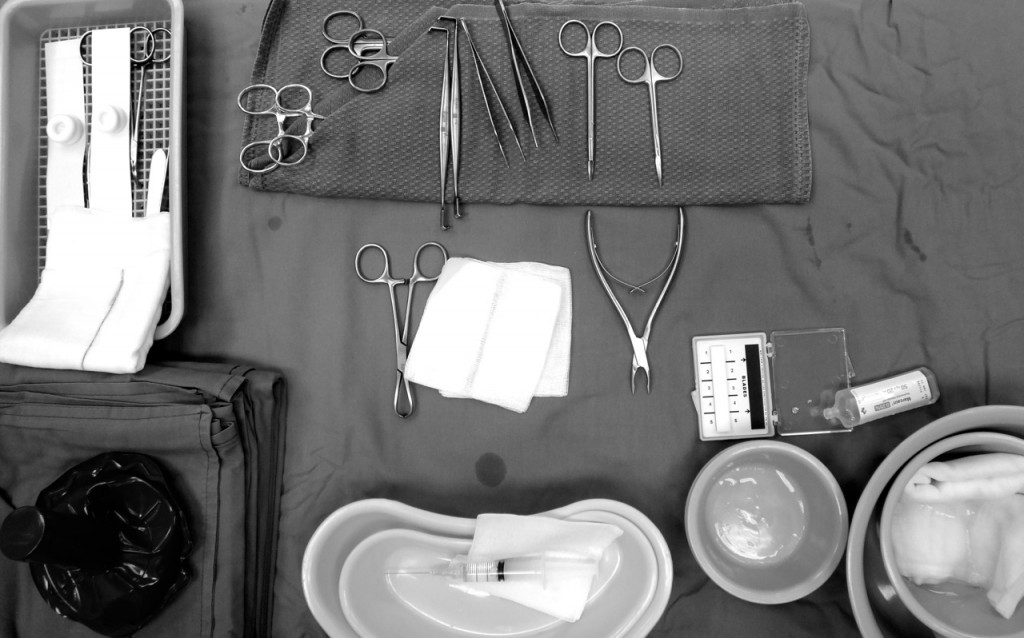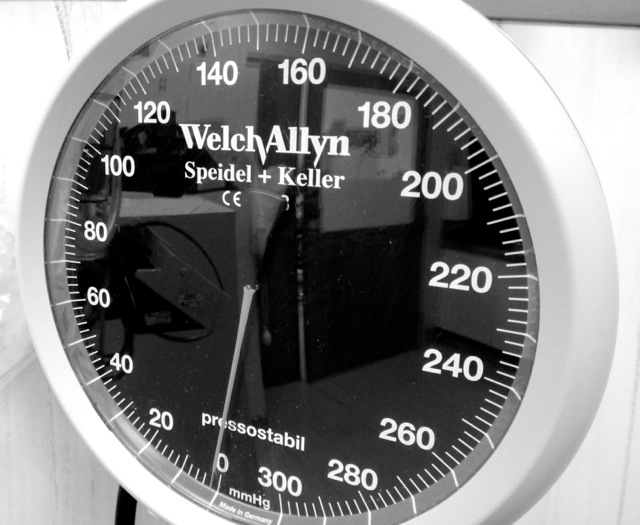This information is only a guide and should not replace information supplied by your anaesthetist. If you have any questions about your anaesthesia, please speak with your treating specialist.
Before coming to hospital
Except in emergency situations patients will generally meet with their anaesthetist prior to their procedure. This is particularly important where the patient has multiple or complicated medical problems, takes medications or has had complications with previous anaesthesia. Patients who have a letter from a previous anaesthetist should tell all future anaesthetists and provide them with a copy of the letter.
During consultation, the anaesthetist may discuss matters including the conduct of the anaesthesia or sedation, pain management, potential complications and risks, and provide an opportunity for the patient to ask questions.
 As part of the preoperative assessment, the anaesthetist will assess a patient’s medical history, review appropriate records, read letters from specialists, which patients should bring to their appointment, may order relevant investigations and tests or refer to other appropriate specialists where necessary to assist in preparing the patient for anaesthesia, and check that the patient has understood, and given consent (preferably signed) for the procedure. He or she may explain the type of anaesthesia that is most appropriate, and may discuss pain-management options.
As part of the preoperative assessment, the anaesthetist will assess a patient’s medical history, review appropriate records, read letters from specialists, which patients should bring to their appointment, may order relevant investigations and tests or refer to other appropriate specialists where necessary to assist in preparing the patient for anaesthesia, and check that the patient has understood, and given consent (preferably signed) for the procedure. He or she may explain the type of anaesthesia that is most appropriate, and may discuss pain-management options.
Patients will, where relevant, receive instructions regarding the medications to be taken prior to and on the day of surgery. This is especially important in patients prescribed blood thinning medications such as aspirin (Astrix, Cartia), clopidogrel (Plavix, Iscover), and warfarin, which thin the blood and increase the risk of bleeding and bruising. Regarding stopping and re-starting these medications patients should obtain instructions either from their anaesthetist or their treating surgeon.
Other medicines that may need to be modified prior to surgery include those used to control blood sugar in diabetic patients. For further information see frequently asked questions. Occasionally patients may be prescribed medications (such as anti-reflux medicine) to be taken the night prior and on the morning of surgery.
The anaesthetist may discuss relevant risks and complications associated with the type of anaesthesia that has been selected. For further information see risks and complications.
Can I eat and drink before my anaesthetic?
Patients who are having an anaesthetic may not be allowed to eat or drink within a specified time of their procedure. This is called fasting. Patients will be advised of fasting times for solid food and liquids and it is important to follow the instructions provided by the anaesthetist. Generally, the protocols below will apply, however it is essential to follow the instructions of your anaesthetist, which may vary depending on the patient and the procedure.
- For healthy adults having elective (planned) procedures, limited solid food may be taken up to six hours prior to anaesthesia and clear fluids totalling not more than 200mls per hour may be taken up to two hours prior to the patient receiving an anaesthetic. Clear fluids may include water, black tea or black coffee, but NOT milk. Chewing gum and chewing tobacco should be treated as food, as they both increase gastric secretions.
- For healthy children over six weeks of age having elective (planned) procedures, limited solid food and formula milk may be given up to six hours, breast milk may be given up to four hours prior and clear fluids up to two hours prior to the child receiving an anaesthetic.
- For healthy infants under six weeks of age having an elective (planned) procedure, formula or breast milk may be given up to four hours and clear fluids up to two hours prior to the infant receiving an anaesthetic.
Only medications ordered by the anaesthetist should be taken (with a sip of water if required) less than two hours prior to anaesthetic being given. Patients who suffer from obstructive sleep apnoea and who use a CPAP machine at night must bring the CPAP machine with them to hospital.
Patients who expect to be discharged from hospital within 24 hours of their procedure should arrange for someone to escort them home. It is a requirement that such patients are accompanied home by a responsible adult, who should remain with them for 24 hours. Patients should arrange this prior to coming to hospital.
Day of operation
Patients should ensure that they arrive in hospital at their allocated time so that the admission process can be completed before their scheduled surgery time. The hospital admissions unit or day-surgery unit will notify patients when they must arrive.
Preparation for surgery commonly includes recording blood pressure, pulse rate, temperature and weight, and ensuring that the patient has followed the anaesthetist’s instructions about fasting (when you last ate and drank). These precautions help to ensure that any immediate risks, such as the presence of an infection, a fast heart rate or very high blood pressure, are minimised.
 If patients have recently developed an acute illness, they should notify the nursing staff on arrival so that the anaesthetist can review their condition. The anaesthetist will determine whether it is appropriate to proceed with surgery. The hospital will provide the necessary operating theatre clothing.
If patients have recently developed an acute illness, they should notify the nursing staff on arrival so that the anaesthetist can review their condition. The anaesthetist will determine whether it is appropriate to proceed with surgery. The hospital will provide the necessary operating theatre clothing.
Depending on the hospital, patients will meet with either a specialist anaesthetist or a trainee anaesthetist and will have an opportunity to speak with their surgeon, who will confirm the nature and site of the operation. Patients should use this opportunity to ask questions.
Depending on the institution, the anaesthetist providing anaesthesia may be different to the one seen in the pre-anaesthetic clinic. In such cases, the anaesthetist will perform a brief assessment and discuss aspects of the anaesthesia technique, relevant risks and possible complications. The patient may be told what to expect after the procedure, including pain-management options. For further information see pain relief.
Any special procedures, such as nerve blocks, epidurals or spinals, may be performed in the anaesthesia bay or room prior to entering the operating theatre. The anaesthetist will obtain your consent before performing these procedures if this was not done preoperatively. Explaining the procedure is part of the process of obtaining your consent.
After your anaesthetic
After emerging from anaesthesia, patients are transferred to the recovery room, which is also known as the post-anaesthetic care unit (PACU), or occasionally to a high dependency unit (HDU) or intensive care unit (ICU).
A nurse will be allocated to care for each patient during their stay in the PACU. The anaesthetist will provide the nurse with instructions and prescriptions for relieving pain, nausea or specific medical conditions.
 The nurse regularly monitors and records relevant medical observations such as blood pressure, pulse rate, oxygen levels and pain levels. Patients should immediately notify nursing staff if they experience nausea or pain, so they can treat it with the relevant prescribed medication. The length of stay in a recovery unit may last up to several hours and generally depends on the nature of the surgery performed, the patient’s health and progress in recovery.
The nurse regularly monitors and records relevant medical observations such as blood pressure, pulse rate, oxygen levels and pain levels. Patients should immediately notify nursing staff if they experience nausea or pain, so they can treat it with the relevant prescribed medication. The length of stay in a recovery unit may last up to several hours and generally depends on the nature of the surgery performed, the patient’s health and progress in recovery.
Day-surgery patients who are discharged from a day-surgery unit will be provided with verbal and written instructions on all relevant aspects of post-anaesthesia and surgical care. Please keep these instructions handy so that you can refer to them if required. A contact place and telephone number for emergency medical care should also be provided.
Suitable pain relief should be provided for at least the first day after discharge with clear written instructions on how and when it should be used. Patients should ask their doctor how and when they should stop taking the pain medicine, and how and when they should take any other regular medications.
Pain relief
Patients are often concerned about pain they may experience after an operation and there are medicines and techniques to help minimise pain. Patients will not normally be discharged from the PACU until adequate pain relief has been achieved either by medications administered orally or directly into a vein.
The anaesthetist may, where necessary, prescribe medicines to be administered by the nursing staff on the ward, of which some may be administered on a regular basis. Others may be prescribed on an “as needed” basis (known as a PRN) to be used as “rescue” analgesia for breakthrough pain, which may occur when the pain relief lasts for less time than the pain. Patients should ask the nursing staff for pain relief if they are in pain. For further information see frequently asked questions.
For major operations such as abdominal surgery or major orthopedic surgery a technique known as patient-controlled analgesia (PCA) may be employed. It allows patients to self-administer a preset dose of medication that is delivered into the vein, and that has been determined by the anaesthetist. Only the prescribed amount of medication can be delivered within a certain period of time and patients will be given clear instructions on how to self-administer the dose. Doctors will review daily the condition of any patients receiving pain relief via PCA.
It is not uncommon for patients to feel light-headed, dizzy or slightly drowsy during the first day after anaesthesia. Patients should not drive, operate machinery or make any important decisions within the first 24 hours after anaesthesia.
Some patients may feel nauseated and they should report this to the recovery room staff so that they can be given anti-nausea medications.
Some patients may experience a sore throat where the membranes have been irritated during anaesthesia. This may last several days and almost always resolves spontaneously. If it does not resolve see your local doctor. For further information see frequently asked questions.
Cost
There may be costs associated with having surgery and anaesthesia. Patients need to ask whether the fee charged by their doctors and the hospital will be covered by Medicare and health fund rebates and, if not, what will be the cost to them. It is important that patients discuss anaesthesia fees with their anaesthetist prior to surgery. Further information on anaesthesia fees can be found here.
[Sourced from the ANZCA here ]

